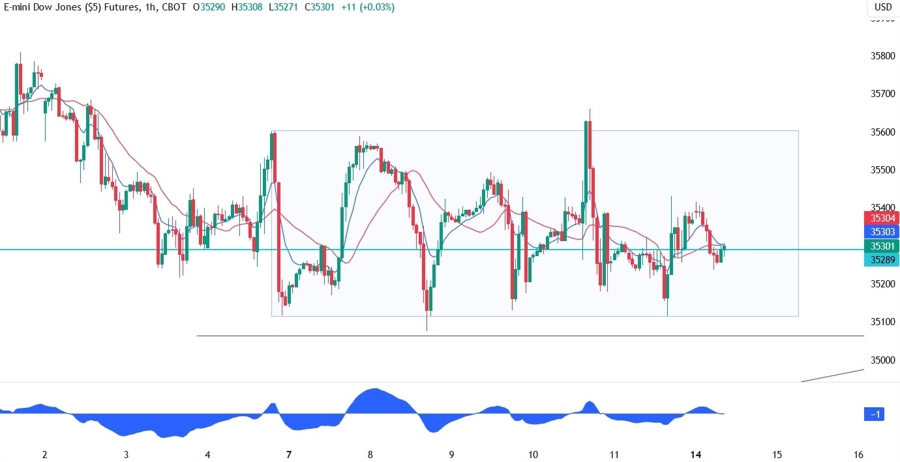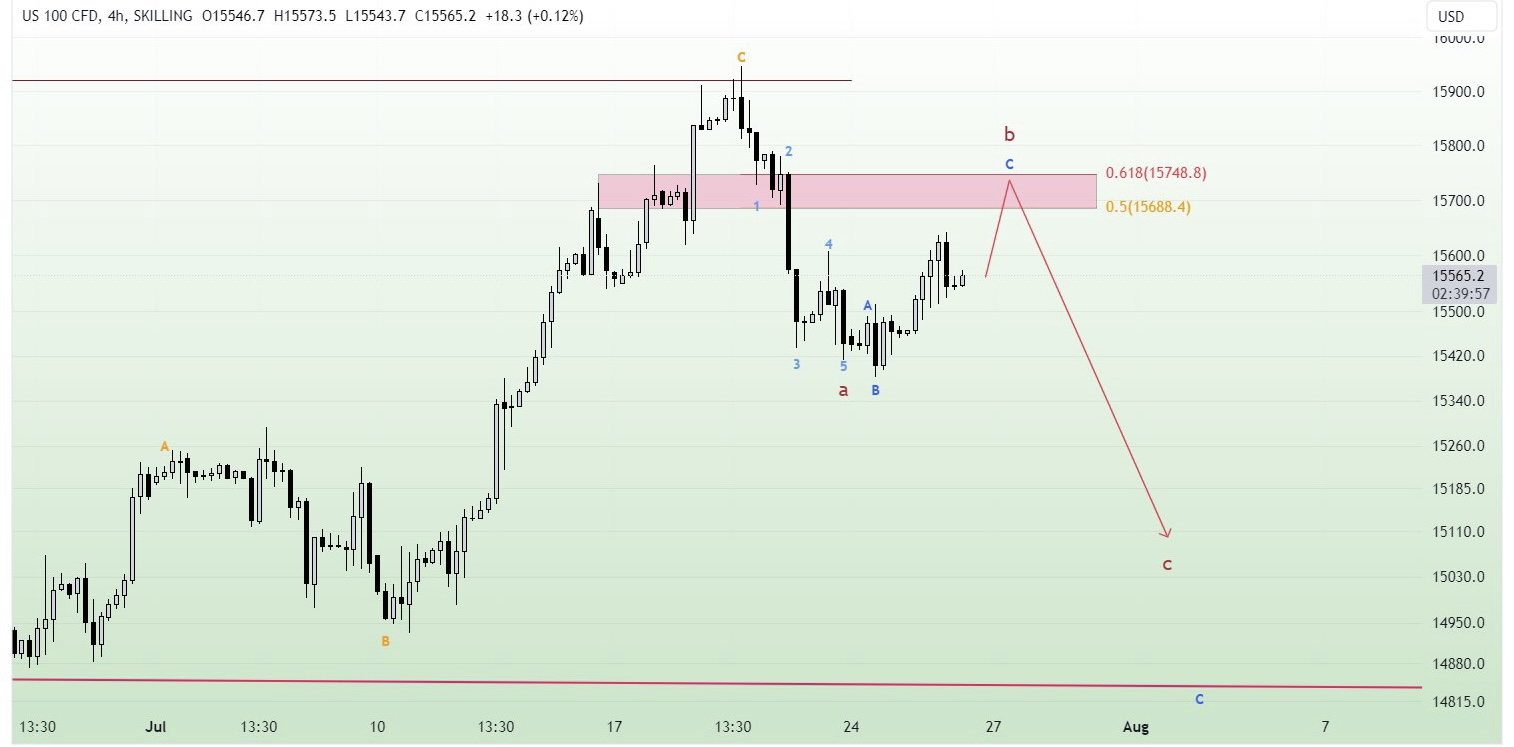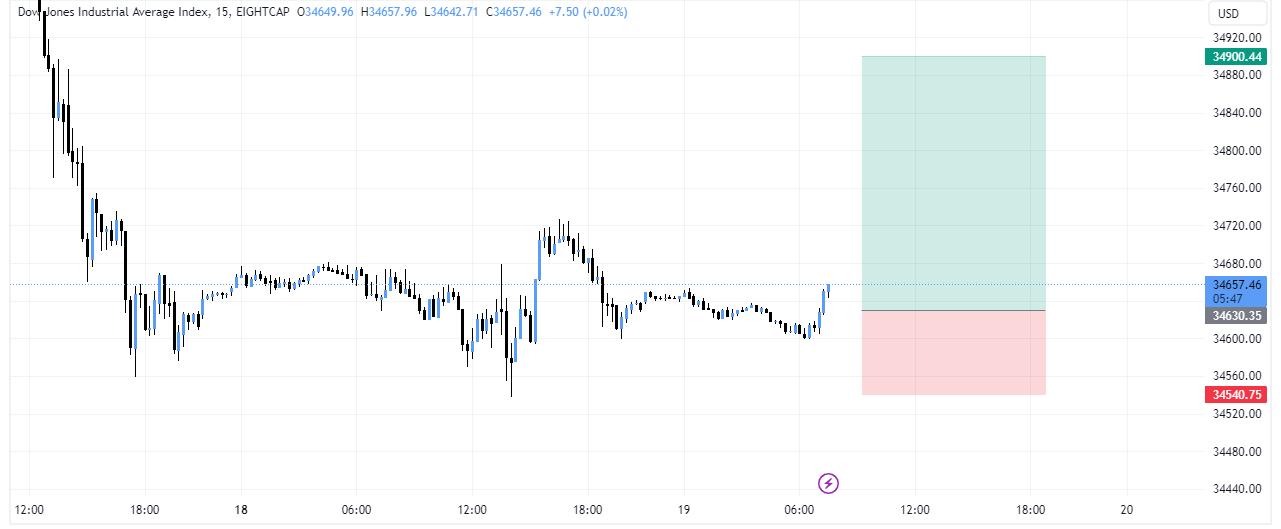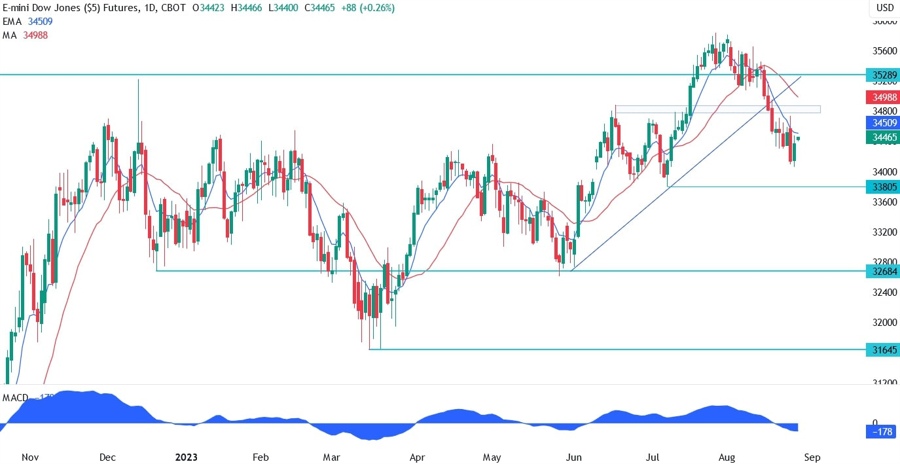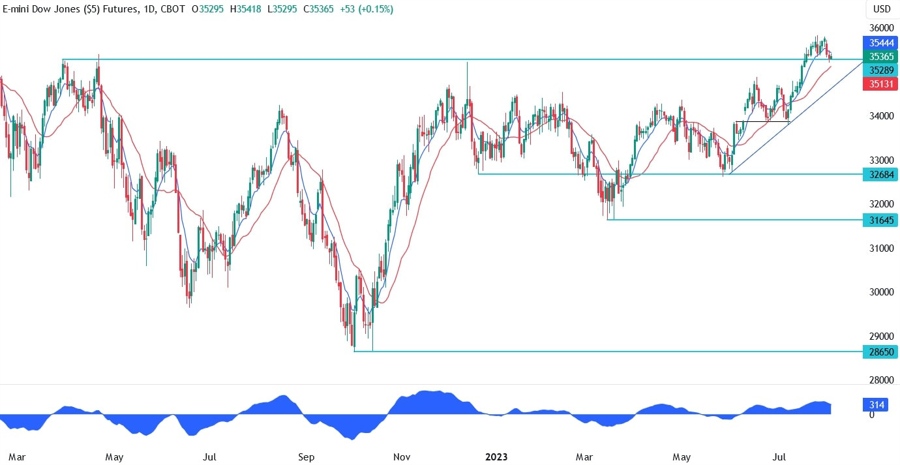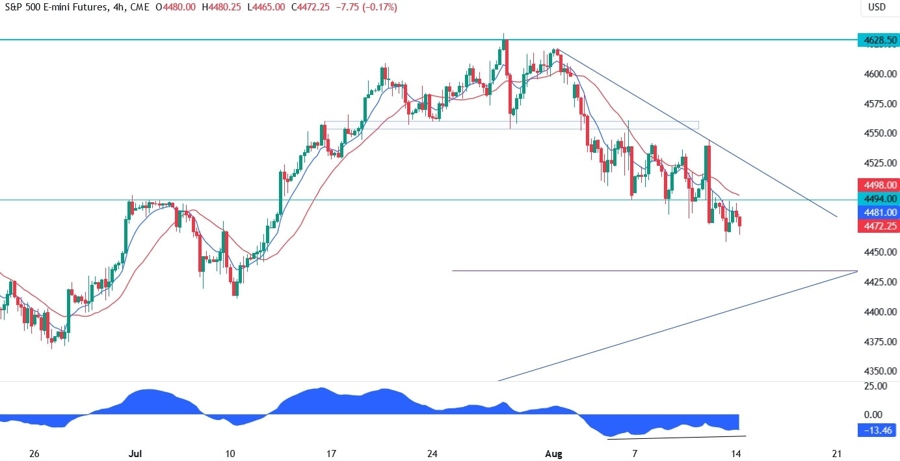The Indice de Precio Selectivo de Acciones- IPC
Parent Index
NA
Indices informations
Listed Exchanges
| Santiago Stock Exchange |
Related Instuments
Sector Represented
Indices
- BSE SENSEX
- CAC 40
- CBOE NASDAQ-100 Volatility Index (VXN)
- CBOE Volatility Index (VIX)
- China50-FTSE China A50 Index
- DAX
- DAX PERFORMANCE-INDEX-GDAXI
- DE40-Germany 40 Index DAX
- Dollar Index USDX-DXY-DX-Dixie
- Dow Jones Industrial Average-DJIA
- EURO STOXX 50 SX5E
- FTSE 100 Index-UK100 Index
- Germany 30
- Hang Seng Index
- IBEX 35-Spain 35
- NASDAQ Composite
- NASDAQ-100
- Nikkei 225
- Russell 2000 Index
- S&P/ASX 200
- Singapore Blue Chip Index-STI
- Swiss Market Index (SMI) Switzerland Blue Chip Index
- TecDax Price Index
- TECHDE30-Germany Tech 30 Index
- US Tech 100 Index UT100
- US2000-US Small Cap 2000 Index
- US30-US Wall Street 30 Index
- US30M- US Wall Street 30 Index M
- US500-S&P 500 (GSPC, INX, SPX)
- US500-US SPX 500 Index
- US500M-S&P 500 Mini
- All Ordinaries
- Amsterdam Exchange Index AEX index
- ATX-Austrian Traded Index (ATX)
- BEL 20
- BELEX15
- BIRS
- BIST-Borsa Istanbul
- CROBEX
- EGX 30 Index Egypts Leading Stock Market Index
- FTSE All-Share Index
- FTSE Bursa Malaysia Index-KLCI Index
- FTSE MIB-FTSE MIB 40
- Índice Bursátil Caracas (IBC)
- Índice Bursátil de Capitalización-The General Index
- Indice de Precios y Cotizaciones
- KOSPI
- KSE 100 Index
- MDAX
- MERVAL
- MICEX-The MOEX Russia Index
- OBX Index
- OMX Copenhagen 20 (OMXC20)
- OMX Helsinki 25 (OMXH25)
- OMX Stockholm 30 (OMXS30)
- PSE Index (PSEi)
- PSI20-PSI-20
- S&P/NZX 50 Index
- S&P/TSX 60
- S&P/TSX Composite Index
- S&P/TSX Venture Composite Index
- SOFIX
- SSE Composite Index (上证综指) Shanghai Composite Index
- Straits Times Index (STI)
- SZSE Component Index (深证成指)
- TA-125 Tel Aviv 125 Index
- Taiwan Capitalization Weighted Stock Index (TAIEX)
- The Indice de Precio Selectivo de Acciones- IPC
- CBOE NASDAQ-100 BuyWrite Index (BXN)
- Hang Seng China H-Financials Index
- IBOVESPA-The Bovespa Index-Brazil Stock Exchange Index
- NASDAQ Financial-100
- SDAX – Small cap
- TecDAX
- aaa
- Amex Gold BUGS Index
- Amex Oil Index
- AScX index – Small cap
- ASE Weighted Index
- Athex 20
- Barrons 400 Index
- BELEXline
- BET-10
- BSE DCI
- BSE FCI
- BUMIX – Mid cap
- BUX – Large cap
- CA60-Canada 60 Index
- CAC All Share
- CAC All-Tradable
- CAC Large 60
- CAC Mid & Small
- CAC Mid 60
- CAC Next 20
- CAC Small
- Capital Markets Index
- CASPI
- CBOE DJIA BuyWrite Index (BXD)
- CBOE S&P 500 BuyWrite Index (BXM)
- CBV Index
- CBV Real Estate Index
- CECEEUR
- Central European Blue Chip Index – Regional large cap
- ChinaH-Hong Kong China H-shares Index
- COLCAP
- Colombo Stock Exchange Sector indices (CSE Sectors)
- CROBIS
- CSC X
- CSE 30
- CSE50
- CSI
- CSI 100 Index (中证100指数)
- CSI 300 Index (沪深300指数)
- Dow Jones Global Titans 50
- Dow Jones Transportation Average
- Dow Jones Utility Average
- DSE
- DSEX
- DSM200
- EGX 100 Index
- EGX 50 Index
- EGX 70 Index
- ERS10
- FIRS
- FT 30 Index
- FTSE 350 Index
- FTSE AIM All-Share Index
- FTSE AIM UK 50 Index
- FTSE All-World index series
- FTSE Fledgling Index
- FTSE Italia Mid Cap
- FTSE MID 250 Index
- FTSE SmallCap Index
- FTSE techMark Index
- FTSE/Athex Large Cap
- FTSE/JSE All Share Index
- FTSE/JSE Top 40 Index
- FTSEurofirst 300 Index
- FTSEurofirst Euro Supersector Indices
- GSE All-Share Index
- Hang Seng China Enterprises Index
- Hang Seng China-Affiliated Corporations Index
- HK50
- IDX Composite
- IGBC
- IPSA
- ISEQ 20-The Ireland Overall Stock Exchange Index-ISEQ20
- IT40-Italy 40 Index
- Jakarta Islamic Index (JII)
- Jamaica Stock Exchange (JSE)
- KASE
- KMI 30 Index
- KOSDAQ
- KSE All Share Index
- KSE-30 Index
- Kuala Lumpur Composite Index
- LASI
- LQ-45
- LuxX Index – Luxembourg Stock Exchange
- MADEX index
- Madrid Stock Exchange General Index
- MASI index
- MESDAQ
- MIDDE50-Germany Mid 50 Index
- MIDDE60-Germany Mid 60 Index
- Milanka Price Index (MPI)
- MSCI EAFE
- MSCI GCC
- MSCI Hong Kong Index
- MSCI World
- MSM-30
- NEPSE Index – Nepal Stock Exchange
- NETH25
- NIFTY 100 LOW VOLATILITY 30
- NIFTY 200
- NIFTY ALPHA 50
- NIFTY BANK
- NIFTY CPSE
- NIFTY ENERGY
- NIFTY FINANCE
- NIFTY FMCG
- NIFTY INDIA CONSUMPTION
- NIFTY INFRA
- NIFTY IT
- NIFTY MEDIA
- NIFTY METAL
- NIFTY MIDCAP 100
- NIFTY MIDCAP 50
- NIFTY MIDCAP LIQUID 15
- NIFTY MIDSMALLCAP 400
- NIFTY MNC
- NIFTY Next 50
- NIFTY PHARMA
- NIFTY PSE
- NIFTY PSU BANK
- NIFTY PVT BANK
- NIFTY REALTY
- NIFTY SERV SECTOR
- NIFTY SMALLCAP 100
- NIFTY SMALLCAP 250
- NIFTY SMALLCAP 50
- NIFTY100 EQUAL WEIGHT
- NIFTY100 LIQUID 15
- NIFTY200 QUALITY 30
- NIFTY50 EQUAL WEIGHT
- Nor25-Norway 25 Index
- NSE 30 Index
- NSE All Share Index
- NSE NIFTY 50
- NYSC Arca Major Market Index
- NYSE American Composite Index
- OMX Iceland 15 (discontinued)
- OMX Iceland 6
- OMX Stockholm PI (OMXSPI)
- OMX Vilnius (OMXV)
- OTCM QX ADR 30 Index
- Palisades Water Index (ZWI)
- PFTS index
- Philadelphia Gold and Silver Index
- PHLX Semiconductor Sector
- PSE All Shares Index
- PSE Financials Index
- PSE Mining and Oil Index
- PSI/GERAL
- PX Index
- RTS Index (RTSI)
- Russell 1000
- Russell 2500
- Russell 3000
- Russell MidCap
- Russell Small Cap Completeness
- S&P 100
- S&P 1500
- S&P Asia 50
- S&P BSE 500
- S&P Europe 350
- S&P Global 100
- S&P Global 1200
- S&P Latin America 40
- S&P MidCap 400
- S&P MidCap 400/BARRA Growth
- S&P MidCap 400/BARRA Value
- S&P SmallCap 600
- S&P SmallCap 600/BARRA Growth
- S&P SmallCap 600/BARRA Value
- S&P Vietnam 10 Index
- S&P/ASX 20
- S&P/ASX 300
- S&P/ASX 50
- SA40-South Africa 40 Index
- SBF 120
- SE30-Sweden 30 Index
- SET Index
- SET100 Index
- SET50 Index
- Slovak Share Index
- SMI Expanded
- SMI MID
- SPBLPGPT
- SSE 180 Index (上证180指数)
- SSE 50 Index (上证50指数)
- STOXX Europe 600
- SWI20-Switzerland 20 Index
- Swiss Leader Index (SLI)
- Swiss Performance Index (SPI)
- SZSE 100 Index (深证100指数)
- SZSE 200 Index (深证200指数)
- SZSE 300 Index (深证300指数)
- TA-35 Index
- TA-90
- Tadawul
- TEDPIX
- TEPIX
- The Global Dow
- The GSE Composite Index.
- THETAUSD Theta Network Token vs US Dollar
- TOPIX
- Trinidad and Tobago Stock Exchange (TTSE)
- UBS 100 Index
- Value Line Composite Index
- VN Index
- WIG-Warszawski Indeks Giełdowy
- WIG30
- Wilshire 4500
- Wilshire 5000
- Zimbabwe Industrial Index
- Zimbabwe Mining Index
Indice de Precios y Cotizaciones Key Data
The Indice de Precios y Cotizaciones (IPC) is the main stock market index in Mexico. It represents the performance of the largest and most actively traded stocks listed on the Mexican Stock Exchange. Investors and analysts closely monitor the IPC as it provides valuable insights into the overall health and trends of the Mexican economy.
Here are some key data points related to the Indice de Precios y Cotizaciones:
Composition
The IPC consists of a diverse range of companies across various sectors, including finance, industry, consumer goods, telecommunications, and more. The index is weighted by market capitalization, giving more weight to larger and more influential companies.
Performance
The IPC’s performance is a reflection of the collective performance of its constituent stocks. It is calculated based on changes in stock prices and adjusted for factors such as stock splits and dividends. Investors use the IPC’s performance as an indicator of the overall direction of the Mexican stock market.
Market Cap
Market capitalization is an important metric used to assess the size and value of a company. It is calculated by multiplying the total number of outstanding shares by the current market price per share. The IPC includes companies with varying market caps, ranging from large-cap multinational corporations to small-cap domestic firms.
Volatility
Volatility measures the degree of price fluctuations in the market. High volatility signifies greater price swings, indicating higher risk and potential returns. The IPC’s volatility is influenced by various factors such as economic conditions, investor sentiment, and geopolitical events.
Trading Volume
Trading volume refers to the number of shares or contracts traded in a given period. Higher trading volumes indicate more market activity and liquidity. The IPC’s trading volume provides insights into investor interest and participation in the Mexican stock market.
Weighted Index
The IPC is a weighted index, meaning that the performance of larger companies has a greater impact on the index value. This ensures that changes in the stock prices of influential companies have a more significant effect on the overall index movement.
Investor Sentiment
The IPC can be influenced by investor sentiment, which is the overall attitude and perception of market participants towards the economy and individual stocks. Positive investor sentiment generally leads to stock price increases and vice versa.
In conclusion, the Indice de Precios y Cotizaciones (IPC) is a crucial benchmark for tracking the performance and trends of the Mexican stock market. By closely monitoring key data points such as composition, performance, market cap, volatility, trading volume, weighted index, and investor sentiment, investors and analysts can gain valuable insights into the dynamics of the Mexican economy and make informed investment decisions.
Indice de Precios y Cotizaciones (IPC): Mexico’s Index of Prices and Quotations
The Indice de Precios y Cotizaciones (IPC), which stands for “Index of Prices and Quotations,” is the main stock market index in Mexico. It serves as a benchmark for the performance of the Mexican stock exchange, measuring the price changes of a select group of stocks traded on the Bolsa Mexicana de Valores (BMV).
The IPC is a weighted index that reflects the overall performance of the Mexican equity market. It consists of a diverse range of companies from various sectors, including finance, telecommunications, consumer goods, energy, and more. By tracking the IPC, investors and analysts can gauge the overall health and direction of the Mexican economy.
Composition of the IPC
The IPC comprises a fixed number of constituent stocks, with each stock’s weight determined by its market capitalization relative to the total market capitalization of all the stocks in the index. This means that larger companies have a greater impact on the index’s movements than smaller ones. The composition of the IPC is periodically reviewed and adjusted to ensure its relevance and representativeness of the Mexican stock market.
Some of the well-known companies that make up the IPC include América Móvil (telecommunications), Grupo México (mining), FEMSA (beverages and retail), Cemex (cement), and Televisa (media and entertainment). However, the actual list of constituents may change over time due to corporate events such as mergers, acquisitions, bankruptcies, or new listings.
Significance and Usefulness of the IPC
The IPC plays a crucial role in Mexico’s financial markets by providing market participants with a comprehensive measure of the country’s stock market performance. It serves as a barometer for both domestic and international investors, allowing them to assess the overall trends and sentiment in the Mexican equity market.
Investors can use the IPC to track the performance of their own portfolios or benchmark their investment returns against the index. Traders also rely on the IPC to identify potential trading opportunities based on technical analysis or market trends.
Moreover, the IPC is closely monitored by analysts, economists, and policymakers as an indicator of Mexico’s economic health. Strong performance in the stock market often correlates with positive economic growth and investor confidence, while downturns may indicate economic challenges or uncertainties. As such, changes in the IPC can influence investment decisions, monetary policy considerations, and broader economic strategies.
The IPC and Global Financial Markets
While the IPC primarily reflects the performance of Mexican stocks, it is not isolated from global financial markets. Like other major indices around the world, it can be influenced by global economic events, geopolitical developments, shifts in investor sentiment, and trends in international capital flows.
Global investors seeking exposure to the Mexican equity market often consider the IPC as a reliable gauge of its performance. Investment funds and exchange-traded funds (ETFs) that track the IPC provide opportunities for international investors to participate in Mexican companies’ growth potential and diversify their portfolios.
Conclusion
The Indice de Precios y Cotizaciones (IPC) is a vital benchmark for tracking the performance of the Mexican stock market. With its diverse composition of leading Mexican companies, the IPC provides insights into the country’s economic trends, investor sentiment, and market dynamics. Whether you are an investor, trader, analyst, or policymaker, keeping an eye on the IPC is essential for understanding Mexico’s financial landscape and making informed decisions in the world of investments.
Fundamental Summary
- Coming soon!!

